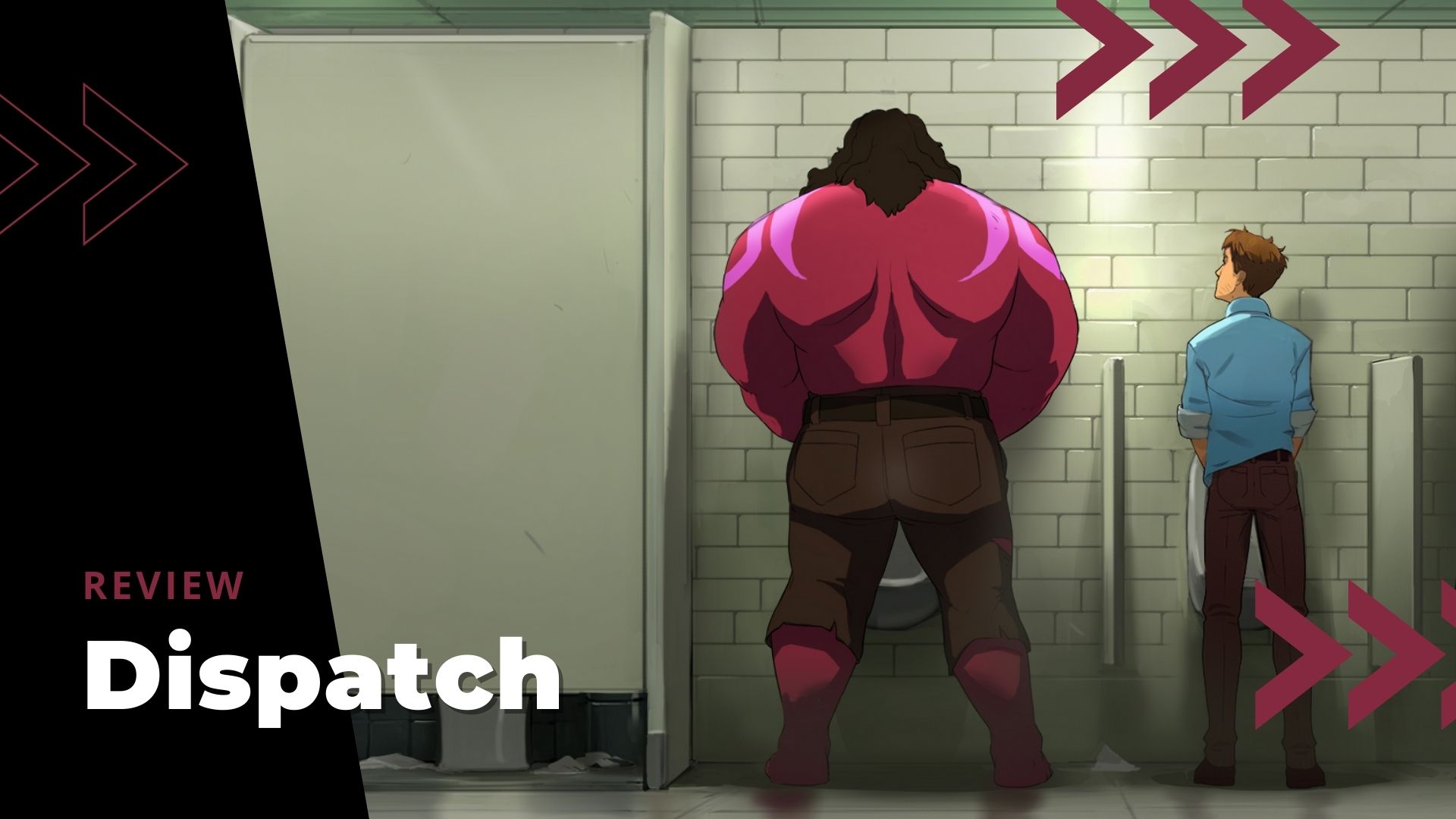Dispatch is a solid title, but I firmly believe the hype surrounding it is overstated. It hasn’t brought anything new to the classic Telltale formula. In fact, it feels like a regression. It is a game that is arguably more enjoyable to watch than it is to play.
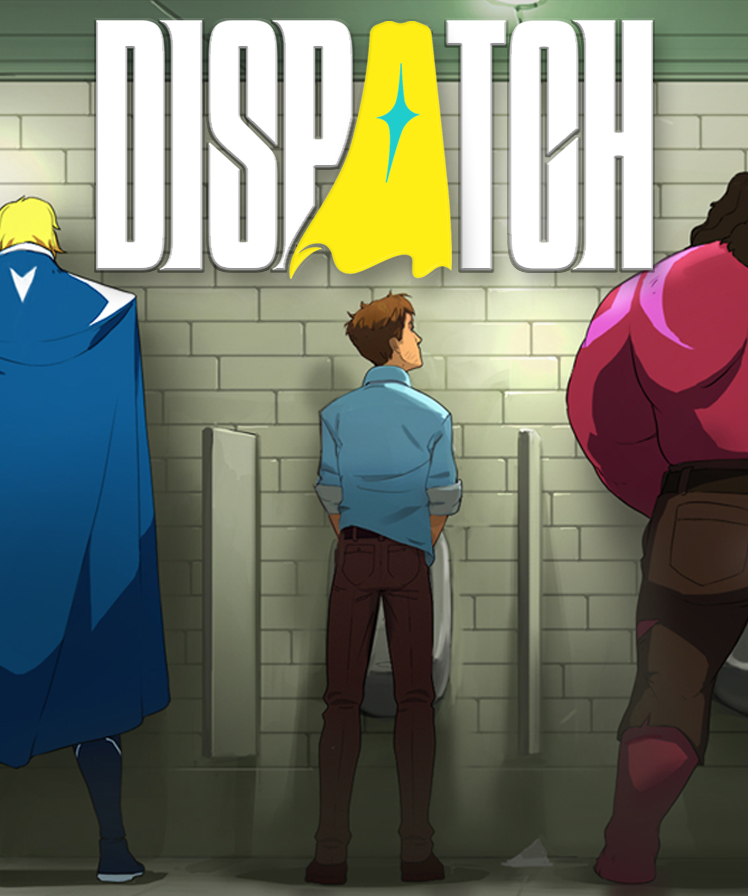
I have a soft spot for Telltale games. Minecraft: Story Mode, in particular, holds a special place in my heart. Following its meteoric rise, Telltale crashed just as quickly, and the talent behind it scattered across the industry. One of the fragments from that explosion was the AdHoc team, the developers behind Dispatch. Although AdHoc has faced numerous struggles since 2018, they have finally managed to release their debut title.
After Telltale’s collapse, the genre fell into a bit of a lull. At their peak, Telltale had flooded the market, and players were suffering from fatigue. Since then, we’ve seen various spiritual successors attempt to evolve the formula, but none truly made a splash—fading into obscurity. That is, until Dispatch.
I had been anticipating Dispatch since its announcement. However, when I looked at the discourse surrounding the launch, the praise was overwhelming. People were acting as if this was the Baldur’s Gate 3 of the Telltale formula. Because of this, I advise managing your expectations. It is a good game, but it is not a masterpiece.
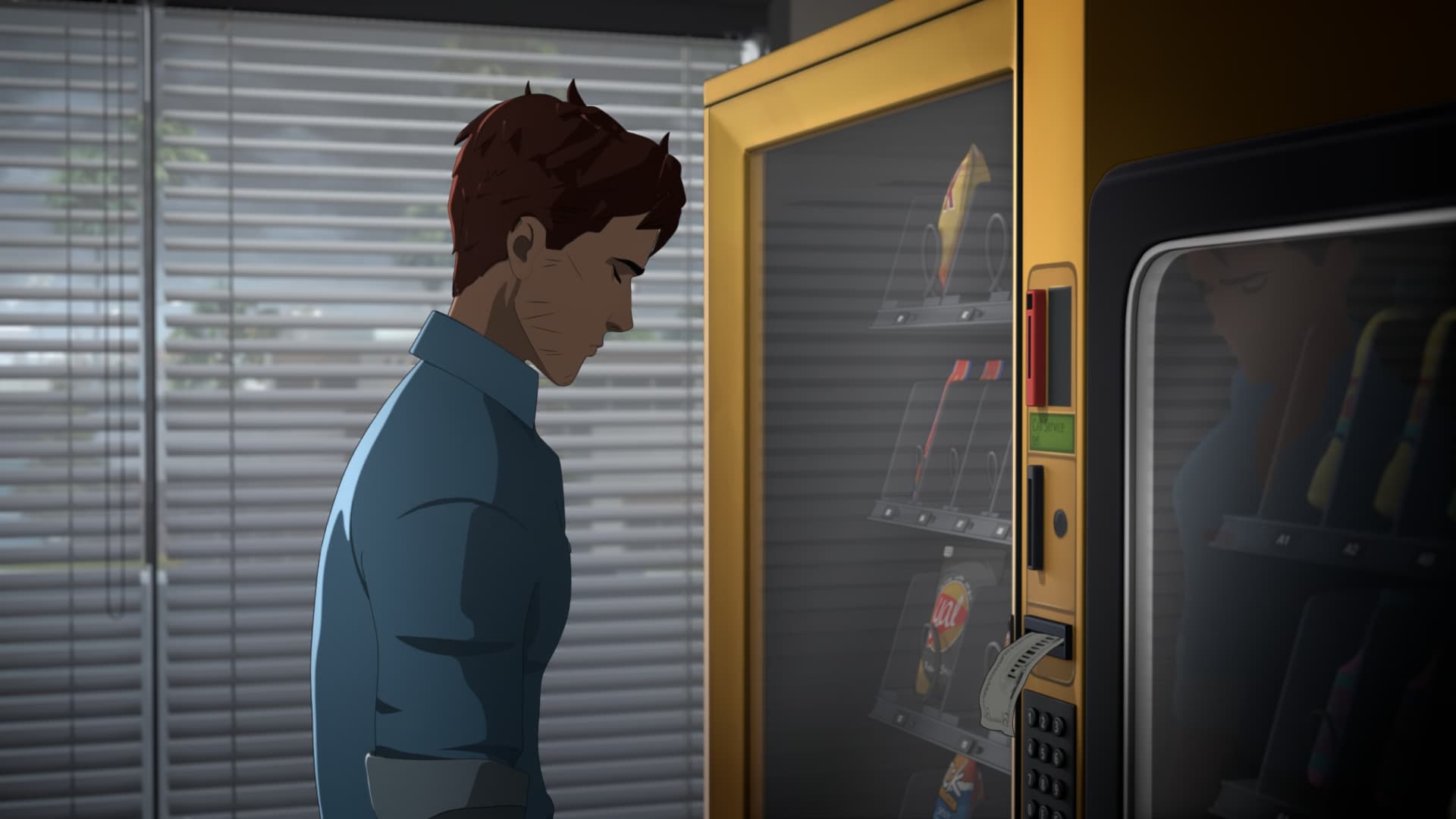
The Fall of Mecha Man
Our protagonist, Robert Robertson, isn’t a “super” hero in the biological sense. He fights crime using the Mecha Man suit, a family heirloom passed down from his grandfather to his father, and finally to him. The game opens with Robert seeking revenge against a villain named Shroud, who killed his father. However, things go south, and the Mecha Man suit is destroyed. Having already spent the family fortune building, upgrading, and repairing the suit, Robert is left penniless.
With the help of an old friend, he lands a job at a superhero company called SDN. SDN is a peculiar entity—essentially a private security firm, but for superheroes. If you’re a client, you call them for anything. Whether it’s “A giant is attacking my house, help!” or “Go get me a coffee,” you serve these needs using superheroes. This forms the core gameplay loop: managing a team of heroes and deploying them to jobs that match their specific skill sets.
What Are We Playing?
The gameplay can be fundamentally divided into two parts: Quick Time Events (QTEs) during cutscenes and the superhero management simulator. Let’s start with the QTEs.
QTEs became a staple mechanic in the gaming world, largely popularized by Telltale. Developers needed a way to bridge cinematic storytelling with gameplay, and QTEs were the solution. However, the mechanic was eventually overused to the point of becoming a meme—“Press F to pay respects.”
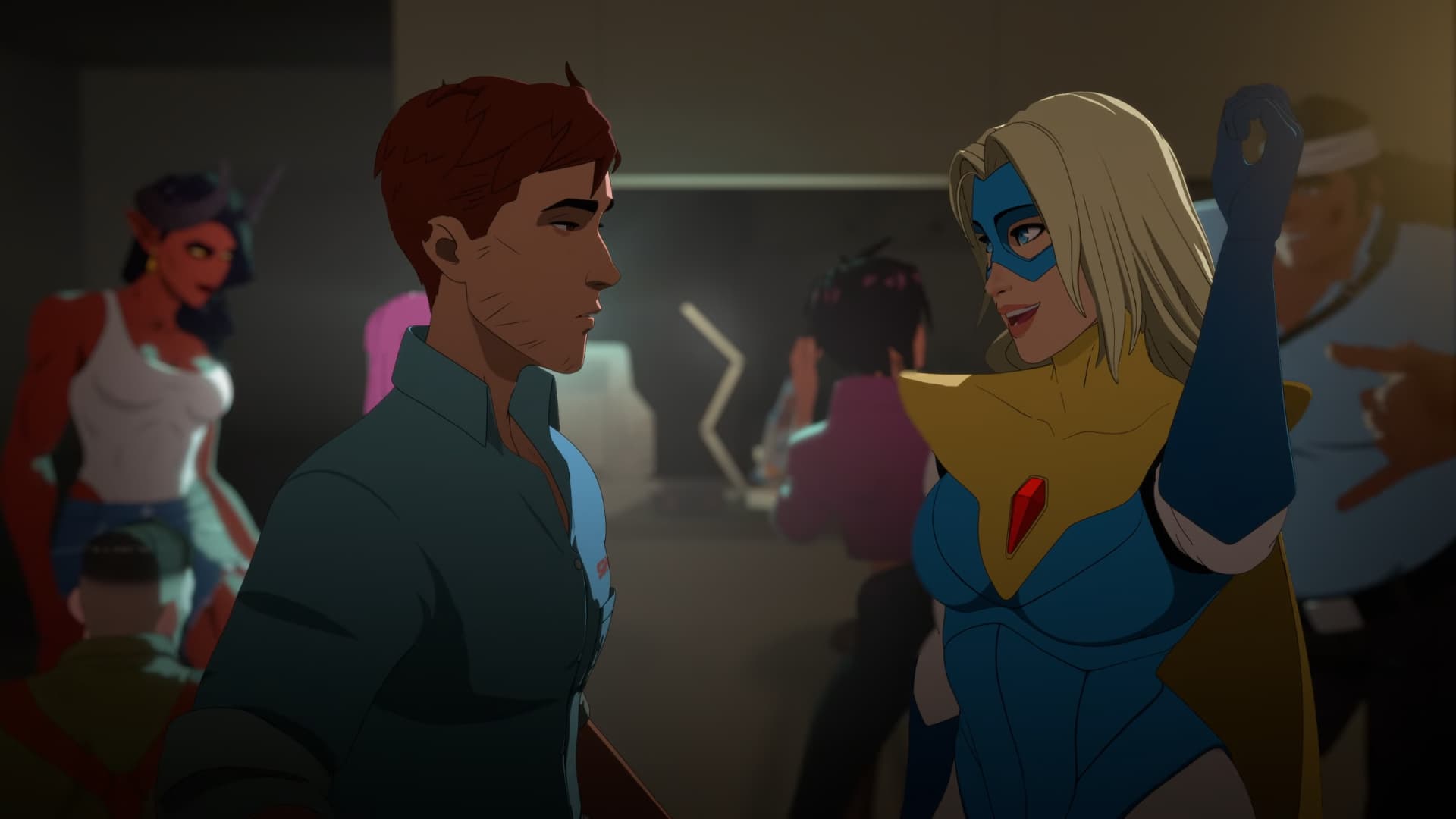
For the uninitiated: a QTE is when the game pauses or slows down during a cutscene, prompting you to press a specific button within a short window. The QTEs in Dispatch, in my opinion, are poor. First off, the game only asks you to click or hold the left mouse button. There are no other inputs; it is an overly simplified system. Furthermore, they are incredibly fast. While most games slow down time for a QTE, Dispatch requires you to react instantly while the scene continues at normal speed.
It feels as though the developers thought, “Well, we are Telltale successors, we can’t have a game without QTEs!” and tacked them on at the last minute. You can actually disable QTEs in the settings if you wish, allowing you to watch the game like a standard animated series. They pop up out of nowhere, and if you aren’t constantly on edge, you will fail them. While keeping the player alert is the point of a QTE, here it feels poorly implemented. They lack rhythm or system; they just happen. They certainly don’t feel like an organic part of the gameplay.
The second part of the gameplay is the superhero call center. SDN clients call in, and you dispatch available heroes to handle the tasks. You have a map where icons appear when a call comes in. Based on the job description, you deploy a hero. For instance, one hero might have high persuasion, another speed, another raw strength. There are also various synergy bonuses when sending heroes together. You can’t just spam your strongest hero for every task because they have cooldown timers. This forces you to manage your roster carefully. Sometimes, you have to reject trivial calls to save your heavy hitters for critical missions. It’s a simple loop, but the character interactions and dialogue keep it engaging.
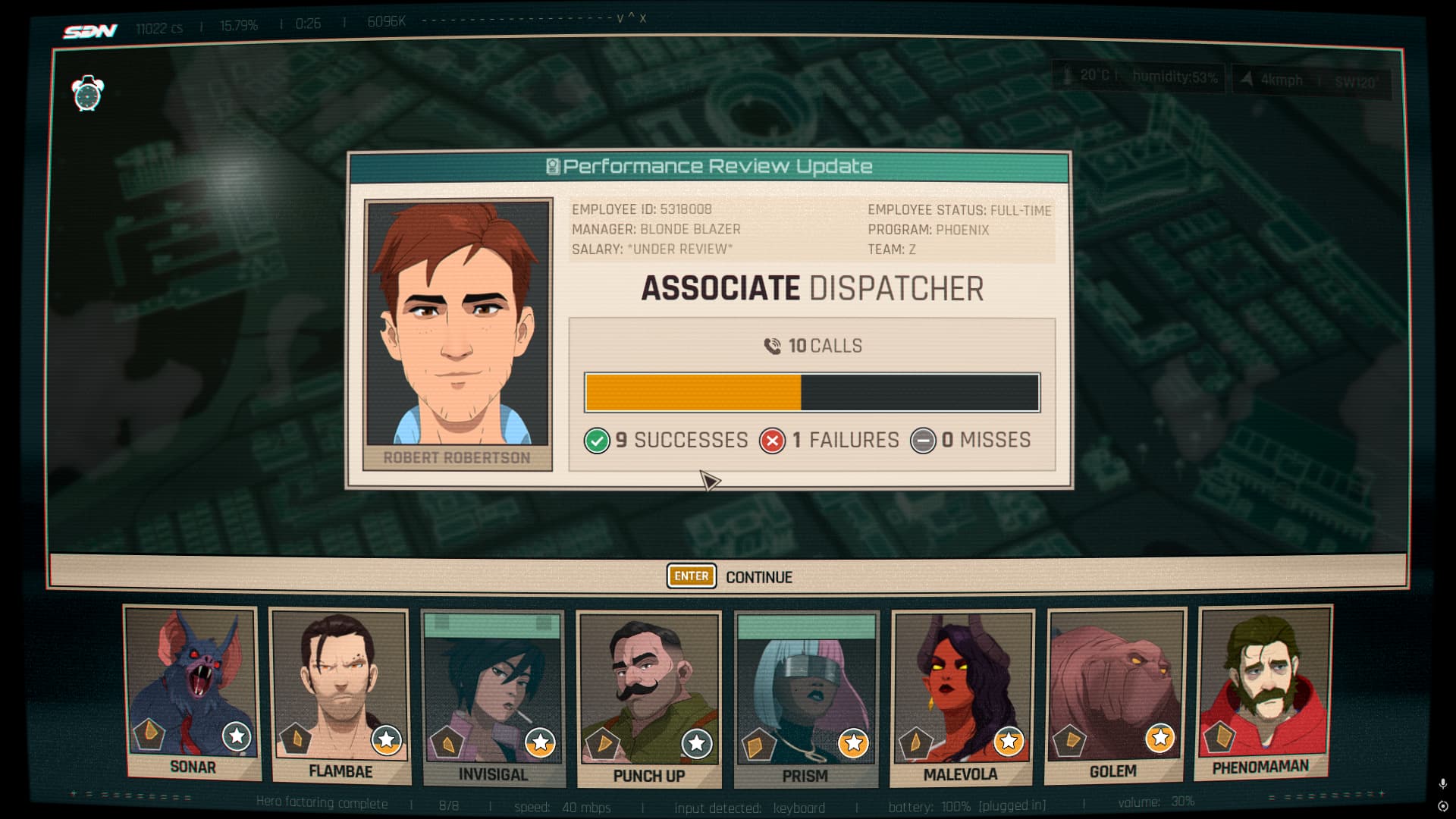
In addition to the dispatch management, there are hacking puzzles. Sometimes you need to access a security camera or hack a computer. These puzzles are simple but manage to introduce new mechanics each time to stay fresh. The variety prevents them from becoming monotonous.
Adding to this, the banter between characters during missions makes the world feel alive. Generally, the writing—story, characters, and dialogue—is top-tier. Every character feels fully realized, and their interactions are meticulously crafted.
The presentation quality speaks for itself. Playing it felt like watching Invincible. The game nails the cinematic vibe. The protagonist is voiced by Aaron Paul (Breaking Bad), and the rest of the cast is equally stellar. If they stripped away the gameplay and released this as a series on a streaming platform, no one would complain.
One more thing worth mentioning: the soundtrack is fantastic. I’ve added several tracks to my personal playlist thanks to this game.
An Episodic Experience
Dispatch was released using the episodic model, which was once quite popular. They dropped two episodes every week, totaling eight episodes. Each episode runs about 45-50 minutes, bringing the total playtime to around 7 hours. A significant portion of the episodes is spent in the “superhero dispatch” interface, shortening the actual narrative runtime. It seems budget constraints forced the team to trim the story length.

Initially, I planned to do an episode-by-episode review. However, due to the short runtime, I had to scrap that idea. Half—perhaps more—of that 45-50 minute runtime is strictly gameplay management. The actual story cutscenes amount to roughly 20 minutes per episode. The basic structure looks like this:
This gives us roughly three 5-10 minute narrative scenes per episode. This is definitely insufficient. However, knowing the budget struggles the team faced, I won’t judge this too harshly. I have immense respect for teams trying to create quality work under difficult conditions, and AdHoc is certainly one of them.
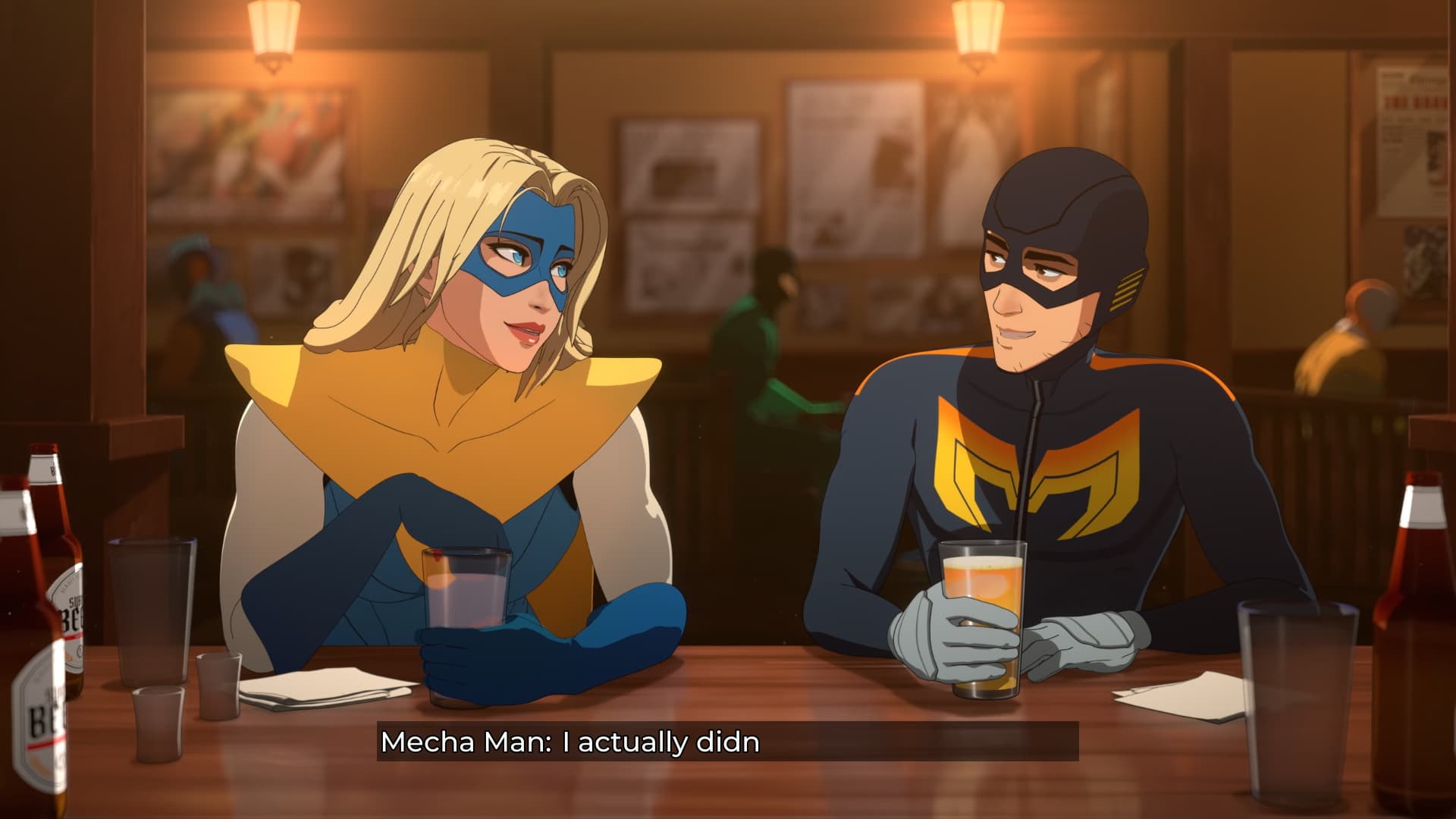
Who is AdHoc?
AdHoc Studio was founded in 2018 following the closure of Telltale Games, comprised of veterans from Ubisoft and Telltale. Originally, they planned Dispatch as a live-action interactive series (FMV). However, when the pandemic hit in 2020, they were forced to pivot. After enduring numerous setbacks, Dispatch managed to launch, albeit in an evolved form. At this point, I wonder if we’ll see a Season 2 or if they will move on to a new IP. The development cycle was prolonged due to budget issues, but reports suggest sales are strong. I am personally curious how long a new season or game would take. One of the key factors in Telltale’s rise was their rapid production pipeline. I’m not sure if AdHoc can match that speed yet.
Is It Worth Playing?
Absolutely. If you have enjoyed any Telltale game in the past, there is no reason you won’t like this. The development team has delivered a very good game given their resources. Between the characters and the dialogue, it is a genuinely enjoyable experience.

